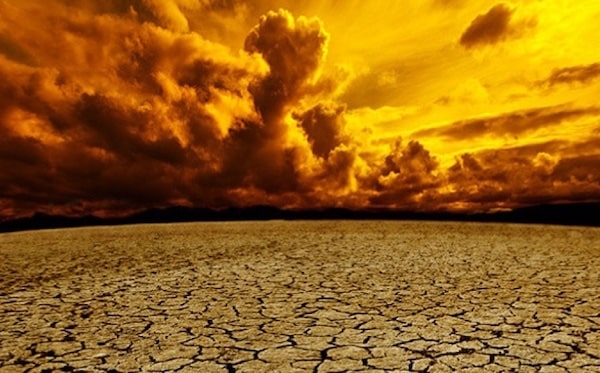For more than a month, much of China has been blanketed by extreme heat. From June 16 to July 9, local governments issued 1,372 high-temperature “code reds,” indicating temperatures are expected to rise above 40 degrees Celsius within 24 hours. Nationally, 71 meteorological stations have reported record highs since the start of June, including many in regions not traditionally associated with high heat. In one blistering stretch, surface temperatures measured by a station in the central province of Henan reached 74.1 degrees Celsius.
The scientific consensus is that the earth is warming. Researchers estimate that global average temperatures have increased by approximately one degree Celsius since the advent of industrialization. Temperatures in China have risen even faster in recent decades. Since 1950, the annual average temperature in China has increased by 0.24 degrees Celsius every 10 years.
Although the damage done by heat waves is not as visible as other side effects of climate change like extreme precipitation or floods, rising temperatures are already causing tens of thousands of deaths in China every year.
Assistant Professor Liu Zhao
To better understand the scale of this challenge, my research team and I reviewed records related to summer heat waves across 31 cities from 1961 to 2020. They point to a simple truth: heat waves are getting longer, stronger, and hotter, with direct consequences for our health.



Temperatures measured during heat waves are also climbing. For instance, before 2000, the traditional “furnace” city of Chongqing almost never experienced heat waves with average daily maximum temperatures in excess of 40 degrees Celsius. It has since done so four times, including during one heat wave that lasted more than 10 days.Yet many people in China continue to see high temperatures as more discomforting than deadly. That’s a mistake. A 2020 study published in The Lancet found that heat-related deaths in China had increased fourfold over the past 20 years, reaching 26,800 in 2019. High temperatures can cause heat stroke and hyperthermia, and significantly increase the risk of death from respiratory and circulatory diseases. Sudden short-term changes in temperature are also associated with increased hospitalization rates for cardiovascular disease, heart failure, and strokes.This year, deaths from hyperthermia have already been reported in Zhejiang, Shaanxi, and Sichuan provinces; many of those who died were workers on construction sites and in factories. One construction worker in the northwestern city of Xi’an reportedly worked nine hours in high temperatures before succumbing.The appearance of heat waves earlier in the year poses additional risks, as sudden temperature spikes in late spring and early summer, before people are prepared, can be deadly. Previous studies have shown that more heat wave-related deaths and disease hospitalizations are reported in early summer than in late summer.



Even in the current best-case scenarios, such as achieving the two-degree warming limit set by the Paris Agreement, China could see heat-related mortality more than double. Small differences in temperatures could have momentous consequences. If we halt climate change at 1.5 degrees Celsius, we could prevent more than 27,900 heat-related deaths every year.Conversely, if we fail to reduce emissions as planned, global average temperatures will rise by around 4 degrees Celsius, and heat-related excess mortality is expected to increase from 1.9% in the 2010s to 2.4% in the 2030s, before reaching 5.5% in the 2090s. This poses a particular danger to countries with aging populations like China, as elderly people with pre-existing conditions are among the most vulnerable to high temperatures.Awareness of the risks associated with heat waves has risen in China in recent years, and both central and local governments have improved warning mechanisms, adjusted work rules, and handed out subsidies to those affected, but the country is far from prepared. At the local level, public cooling spaces should be opened in cities to help low-income people, and more attention needs to be paid to the needs of vulnerable groups like delivery drivers, construction workers, and the elderly.More fundamentally, the world needs to adopt stronger climate change mitigation and adaptation measures, such as reducing the use of fossil fuels and increasing urban green spaces. For many people, 2090 still seems far in the future, but as the heat waves currently engulfing China and Europe (and the USA) show, the choices we make now will decide, not just the fates of our children, but also our own.
Source: Sixth Tone, July 20, 2022. https://www.sixthtone.com/news/1010811/summer-%28and-spring%2C-and-fall%29-heat-waves-are-the-new-normal
Liu Zhao is an assistant professor in the department of earth system science at Tsinghua University and the Beijing Institute of Economics and Management.

